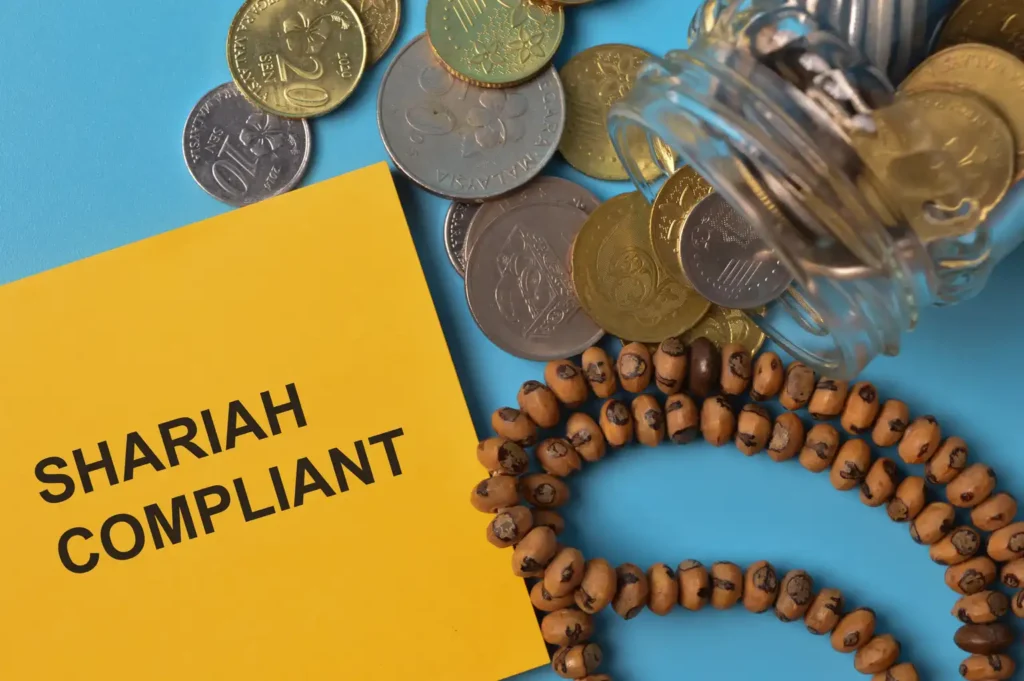In recent years, blockchain technology has been a Haria-compliant finance in fintech. Not only is it decentralized, but it also offers transparency, security, and efficiency, all of which have the potential to revolutionize conventional banking and financial systems.
An especially interesting story has developed around using blockchain technology to guarantee adherence to Sharia law, the global code of ethics for Muslims’ financial dealings. An influential figure in the Web3 industry has just brought attention to blockchain’s benefits in maintaining Sharia ethics, stating that this cutting-edge technology is leading the way in financial solutions that adhere to Islamic financing rules.
Sharia Law and Ethical Finance
Financial dealings are one area that is regulated by the norms of Sharia law. Investment in haram (forbidden) activities, including alcohol, gambling, and pork-related enterprises, as well as the prohibition of riba (usury) and gharar (extreme uncertainty), are essential tenets of haria-Compliant Finance.
Islamic finance focuses on ethical investing and risk sharing to create financial solutions that benefit society and everyone involved fairly. Traditional financial systems, frequently marked by opaqueness, speculation, and unfair behaviors, face obstacles when they adhere to these ideals.
Blockchain in Sharia Finance

Blockchain technology has inherent properties that can fix the main problems in Sharia-compliant financing. The immutability of blockchain data is a major plus. On a blockchain, all parties can access an immutable record of all transactions. With this level of visibility, all financial operations may be traced and stay consistent with Sharia standards. As a result, investors, consumers, and regulatory agencies will have more faith in the business, and the chances of dishonest activities will decrease.
One way to ensure that financial transactions follow Sharia principles is to use smart contracts, which execute according to the terms set in the code. An executive from Web3 suggested that these smart contracts might reduce the room for human mistakes and possible wrongdoing by automatically checking whether a certain financial transaction complies with Islamic law before carrying it out.
Blockchain in Risk-Sharing Finance
Essential to Sharia-compliant financing is the concept of risk-sharing. Transferring risk to one party is common in conventional finance, which opens the door to abuse. In line with Sharia principles, blockchain technology’s decentralized nature encourages a fairer allocation of risk among users. Stakeholders can participate in joint investment opportunities with transparent profit and loss sharing using decentralized finance (DeFi) systems, creating a feeling of community and mutual gain.
In addition, blockchain technology helps improve investment tracking so stakeholders and partners can see if their money is going to businesses that follow Sharia law. For Islamic ethical principles to guide investment strategies, this transparency is critical so that people can invest in companies that share their beliefs and work for social justice.
Blockchain for Financial Inclusion

Islamic banking strongly emphasizes financial inclusion, which aims to allow economically disadvantaged people to participate. Blockchain, a distributed ledger technology, might make banking more accessible to more people. Many developing regions rely on low-income consumers and small enterprises to access financial goods directly. Blockchain technology removes the need for traditional banking intermediaries, making this possible.
The CEO from Web3 also noted that blockchain technology can lessen the expenses of opening and maintaining bank accounts and international transactions. This lower cost barrier is crucial to financial inclusion and makes Sharia-compliant finance available to more people.
Blockchain’s Role in Sharia Finance
Blockchain technology has a bright future as far as Sharia-compliant money is concerned. As a result, more and more banks seek to implement blockchain technologies that respect Islamic law. Tokenization, which converts physical assets into digital tokens, may create new Sharia-compliant investment opportunities. This allows for fractional ownership and greater participation in investments.
In addition, experts in Islamic banking and blockchain technologists must collaborate. It is a good idea to consult with Sharia law specialists to ensure blockchain solutions adhere to Islamic financial principles and technological standards. Together, these groups can create new goods that meet the demands of Muslim investors.
Summary
In the fight for Sharia compliance in the finance sector, blockchain technology stands out as a valuable ally because of its immutability, safety, efficiency, and possibility of risk-sharing. An official from Web3 has voiced their support for blockchain technology, reiterating that it can facilitate financial innovation while strictly adhering to ethical standards.
With its compatibility with haria-Compliant Finance financing, blockchain technology has the potential to revolutionize ethical finance and usher in a new age of financial transparency, social responsibility, and equity. Together, ethics and technology have the potential to create a future financial system that is more inclusive, sustainable, and respectful of cultural and religious values.
[sp_easyaccordion id=”3476″]

